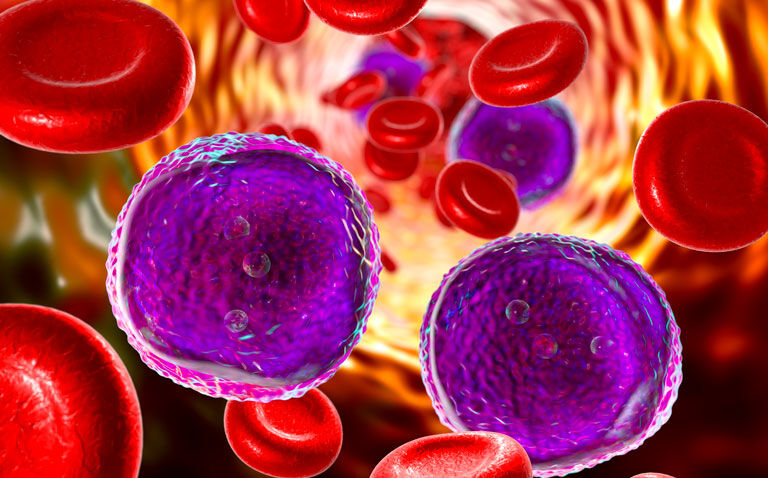The use of base-edited chimeric antigen receptor (CAR) T cells with a specificity for CD7 could become a therapeutic option for children with relapsed T-cell leukaemia, according to the interim findings of a recent phase 1 trial.
A potential problem with CAR T cell therapy is that since both the CAR T cells and the malignant T cells share the same antigen target, there is a risk of fratricide or self-killing of the CAR T cells. One solution is to use base-edited universal and hence ‘off-the-shelf’ CAR T cells. The base-editing process involves making changes to single letters of DNA code, which stop genes being expressed without having to make a cut to the chromosomes.
In the current study, published in the New England Journal of Medicine, researchers investigated the safety of these edited cells. They used base editing to inactivate three genes encoding for CD52 and CD7 receptors, as well as the β chain of the αβ T-cell receptor. Next, they added a CAR, which recognised the CD7 T-cell receptor on leukaemic T cells. The final base-edited CD7-targeted CAR (BE-CAR7) T cells were then given to three children as an infusion.
Safety of BE-CAR7 T cells
The first patient receiving the BE-CAR7 T cells was a 13-year-old girl with relapsed T-cell acute lymphoblastic leukaemia. After 28 days, it was found that BE-CAR7 T cells were the major circulating mononuclear cells. She then received a reduced-intensity (non-myeloablative) allogeneic stem cell transplant from her original donor, with successful immunologic reconstitution and ongoing leukaemic remission.
The other two patients receiving BE-CAR7 T cells had less successful results. One died of a fatal fungal infection-related complication, whereas the other patient underwent allogeneic stem cell transplantation while in remission.
The researchers suggested that these interim results support further investigation of base-edited T cells for patients with relapsed T cell leukaemia and are aiming to recruit 10 children for the initial cohort.










